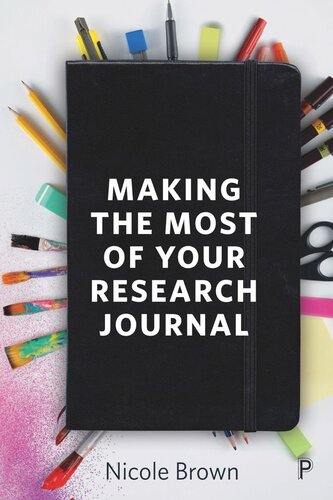

Most ebook files are in PDF format, so you can easily read them using various software such as Foxit Reader or directly on the Google Chrome browser.
Some ebook files are released by publishers in other formats such as .awz, .mobi, .epub, .fb2, etc. You may need to install specific software to read these formats on mobile/PC, such as Calibre.
Please read the tutorial at this link: https://ebookbell.com/faq
We offer FREE conversion to the popular formats you request; however, this may take some time. Therefore, right after payment, please email us, and we will try to provide the service as quickly as possible.
For some exceptional file formats or broken links (if any), please refrain from opening any disputes. Instead, email us first, and we will try to assist within a maximum of 6 hours.
EbookBell Team

4.4
32 reviewsProviding practical guidance based on real-life examples, this book shows researchers different forms and ways of keeping a research journal and how to get the most out of journaling. Appealing to postgraduate students, new and experienced researchers, the book: • provides a theoretical grounding and information about knowledge and sensory systems and reflexivity; • presents a practical exploration of what a journal looks like and when and how to record entries; • includes helpful end-of-chapter exercises and online resources. Providing valuable food for thought and examples to experiment with, the book highlights the different forms of research journals and entries so that readers can find what works for them. Giving researchers licence to do things differently, the book encourages and enables readers to develop their own sense of researcher identity and voice.